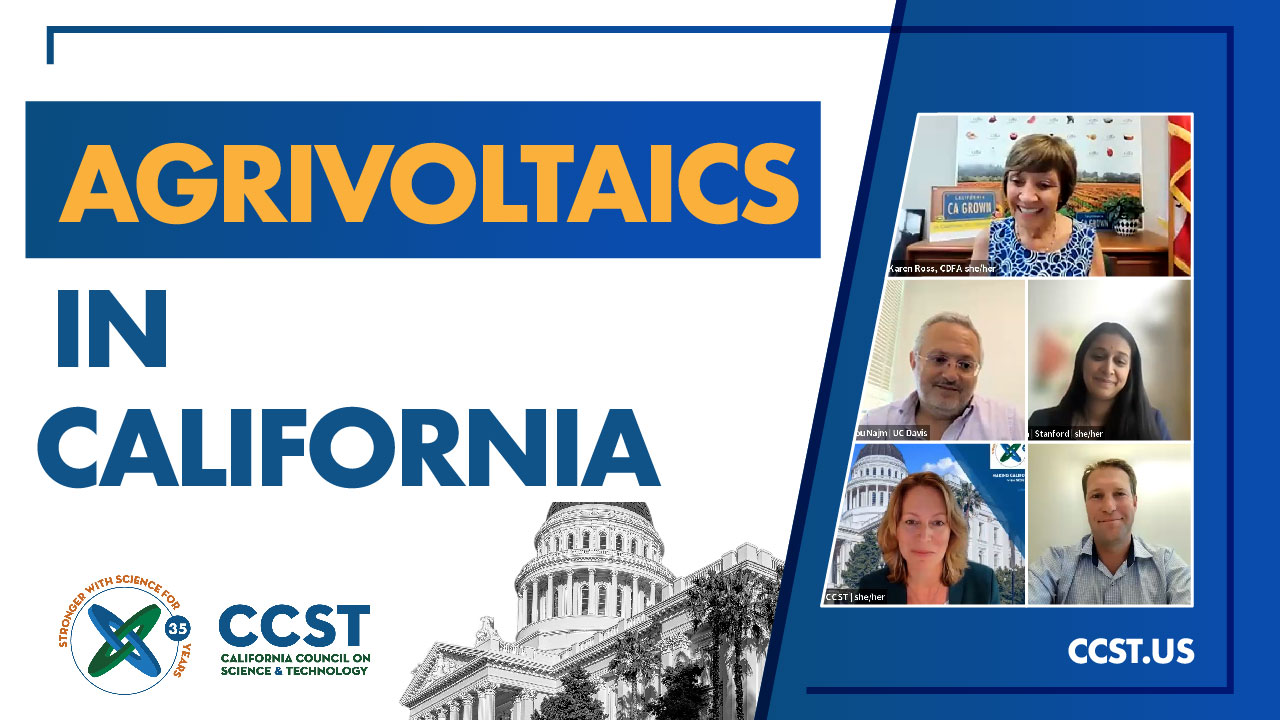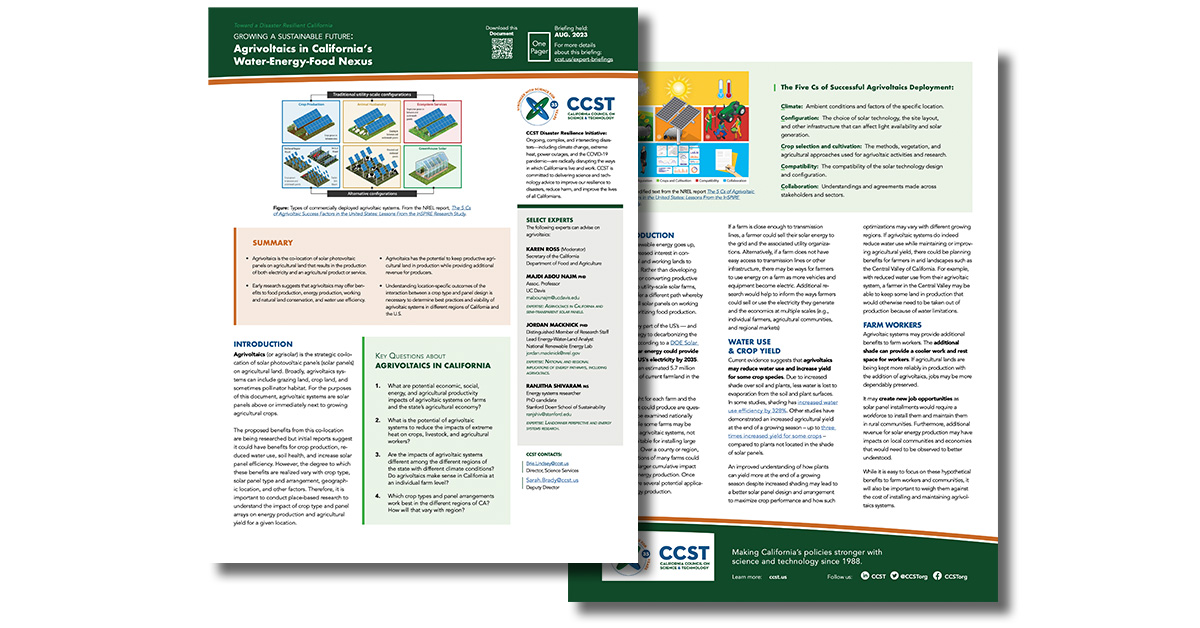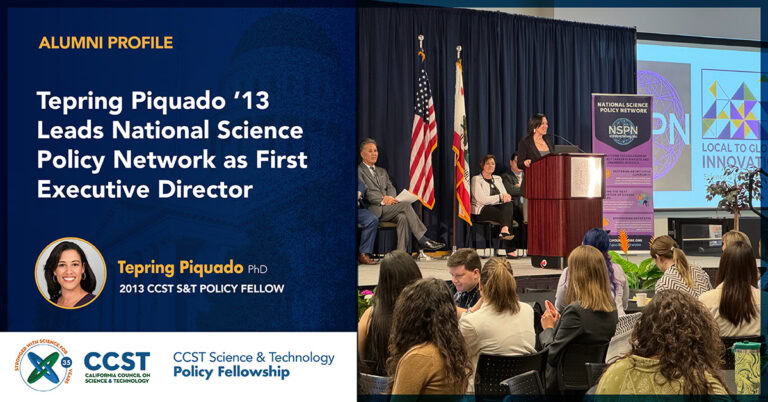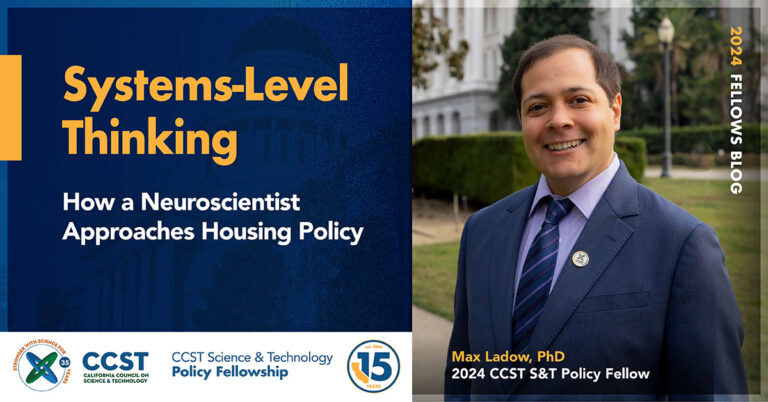CCST’s Brie Lindsey, PhD, Hired as Deputy Director at California Ocean Science Trust
Watch: The Role of Agrivoltaics in California’s Water-Energy-Food Nexus
August 15, 2023 | CCST Newsroom, Events, Expert Briefings

Agrivoltaics is the co-location of solar panels on agricultural lands that results in the co-production of agricultural products and electricity. Globally, it is a growing area of research that has the potential to address challenges in the water-energy-food nexus. In the US, there has been a recent expansion of research into the compatibility of various crops with a range of solar panel designs. Understanding crop-panel interactions is critical to simultaneously maximizing crop yield and energy yield, while gaining other benefits like increased water use efficiency. However, to date, there has been limited investment in agrivoltaics research or development in California, despite California being a leader in both agriculture and solar energy production. This panel of experts discusses the potential for development, challenges, and benefits of agrivoltaics in California.
In Summary: Agrivoltaics in California
- Agrivoltaics is a method of integrating solar panels on agricultural land to maximize the potential of productive agricultural lands and provide an additional benefit of energy production and income for farmers and farm communities.
- Agrivoltaics can be used in a variety of agricultural activities, including for crops, grazing, pollinator habitats, and solar integrated greenhouses.
- Growers and other stakeholders (e.g., utility companies, land managers, etc.) in California are interested in the potential that agrivoltaics promise, but they want to see it in action with Californian soil, water limitations, crop types, and utilities providers to understand the cost-benefit analysis before committing to it.
- Agrivoltaics can help address challenges such as extreme heat and excess water use that may impact food, water, and energy security.
- Agrivoltaics is seen as a climate-smart method for maintaining productive agricultural lands, reducing impact on natural lands, and providing additional energy for the growing population.
Watch the full briefing and download the one pager to learn more!
—
Karen Ross
Secretary of the California Department of Food & Agriculture
Panelists:
Majdi Abou Najm
Associate Professor
UC Davis
Jordan Macknick
Lead Energy-Water-Land Analyst
National Renewable Energy Laboratory (NREL)
Ranjitha Shivaram
Energy Systems Researcher and PhD Candidate
Stanford

###
About the California Council on Science and Technology
The California Council on Science and Technology is a nonpartisan, nonprofit organization established via the California State Legislature — making California’s policies stronger with science and technology since 1988. We engage leading experts in science and technology to advise State policymakers — ensuring that California policy is strengthened and informed by scientific knowledge, research, and innovation.






